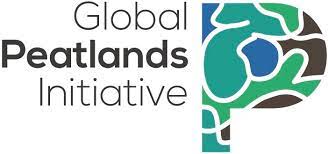
Facilitating workshops with local communities
This event has now finished.
Event details
Learn how to use workshops to engage local communities in research. The session starts by considering how you can channel your natural emotional intelligence as a facilitator to manage power dynamics, using a case study of a workshop with peatland communities in the UK that went wrong. It then considers techniques to open up, analyse and decide in online and face-to-face workshops. The session concludes with case studies from Indonesia and Canada. This includes the relationship building process in the Canadian Forest Management Wetland Stewardship Initiative, and experience navigating conservation conflicts with fishing communities in Indonesia.
About the trainers
Professor Mark Reed is Co-Director of the Thriving Natural Capital Challenge Centre at Scotland’s Rural College (SRUC), and a Visiting Professor at Newcastle University, Birmingham City University and the University of Leeds. He has over 200 publications that have been cited more than 20,000 times and has won awards for the non-academic impact of his research. He is author of The Research Impact Handbook, The Productive Researcher and Impact Culture and CEO of Fast Track Impact. He provides training and advice to Universities, research funders, NGOs and policy-makers internationally. Find out more about his work or follow him on Twitter.

Dr Sara Thornton is Principal Research Officer for the Ecosystem Health and Social Dimensions team at the Wildfowl and Wetlands Trust. She is an interdisciplinary conservation researcher with an interest in social-ecological systems, interdisciplinary approaches to conservation, debates surrounding sustainable development and the role of different knowledges in conservation research and management. She has 10 years of research experience in tropical peatland ecology, livelihoods and conservation. Her PhD explored peat-swamp fish and the importance of fish(ing) to human communities in Central Kalimantan, Indonesia. Find out more about her work here or follow her on Twitter.

Kristyn Mayner is a Wetland Stewardship Specialist with Ducks Unlimited Canada’s National Boreal Program. She is an ecologist and Earth Sciences M.Sc. graduate from McMaster University with over ten years experience in consulting, academia and non-profit roles, bringing diverse groups together to discuss and facilitate wetland conservation, sustainable land use and restoration. Find out more about the National Boreal Program’s work or follow her on Twitter or LinkedIn.
About the Global Peatlands Initiative
The Global Peatlands Initiative is an effort by leading experts and institutions formed by 13 founding members at the UNFCCC COP in Marrakech, Morocco in 2016 to save peatlands as the world’s largest terrestrial organic carbon stock and to prevent it being emitted into the atmosphere. The current greenhouse gas emissions from drained or burned peatlands are estimated to amount up to five percent of the global carbon budget — in the range of two billion tonnes CO2 per year.
Partners to the Initiative are working together within their respective areas of expertise to improve the conservation, restoration and sustainable management of peatlands. In this way the Initiative is contributing to several Sustainable Development Goals , including by reducing greenhouse gas emissions, maintaining ecosystem services and securing lives and livelihoods through improved adaptive capacity.
Find out more at: www.globalpeatlands.org
Partners




